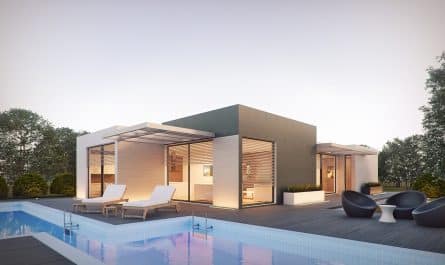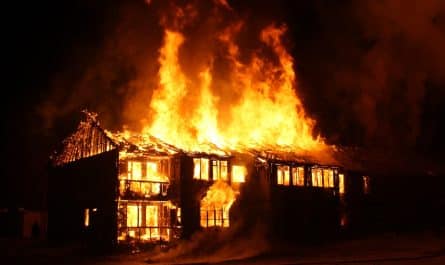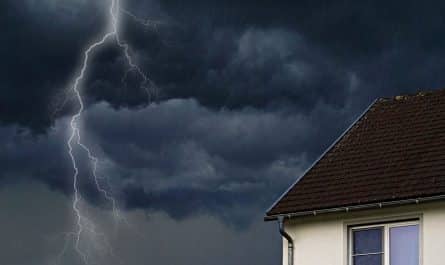Atypical housing such as lofts, container houses or even troglodyte dwellings are gaining popularity these days. It is therefore crucial to choose your home insurance carefully in order to benefit from coverage adapted to your specific needs. In this article, we will give you some advice to help you make the right choice when it comes to home insurance for unusual accommodation.
Understand what atypical housing is
Atypical housing is defined as being different from traditional housing, often because of its architectural design, geographic location or use. Characteristics that can make a home atypical include:
- Unusual building materials (like shipping containers)
- Original or avant-garde architecture
- A particular location (for example, built on water or in a cave)
- An exceptional size (very large or very small surface)
These particularities can make the insurance process more complex and expensive. However, it is essential to be well protected to avoid unpleasant surprises in the event of a disaster.
What guarantees are there to ensure atypical accommodation?
Civil liability
There civil liability is an essential guarantee of any home insurance. It covers damage caused to others by the owner or occupants of the accommodation, whether inside or outside the house.
Fire and water damage insurance guarantees
It is strongly recommended to take out insurance guarantees.fire and water damage insurance, even if these are not obligatory for atypical housing. These two guarantees cover damage caused by fire and water damage, such as leaks or infiltration.
Theft and vandalism guarantee
Unusual housing may attract attention and be more vulnerable to vandalism or burglary attempts. There theft and vandalism guarantee is therefore important to ensure the security of your unusual property.
Optional guarantees
Depending on the specificity of your atypical accommodation, you can also consider certain optional guarantees:
- Electrical damage guarantee : to cover electrical appliances and installations in the event of overvoltage or short circuit
- Glass breakage guarantee : to cover the costs of repairing or replacing broken windows
- Garden and exterior fittings guarantee : to protect the exterior elements of your home (swimming pool, terrace, fences, etc.)
- Valuables guarantee : to insure works of art, jewelry or other precious goods present in the home
Find the right home insurance for your unusual home
To find the best home insurance for your unusual property, several steps must be followed:
Analyze your specific needs
Start by assessing the characteristics of your atypical accommodation (materials, architecture, location, etc.), which can influence the risks incurred and the guarantees required.
Compare market offers
Take the time to compare different insurance companies and their offers to find the one that best suits your needs and your budget. It is possible to make comparisons online to get an idea of the prices and guarantees offered. You can also call on an expert advisor in the field to better help you find the best offer on the market.
Seek help from an insurance broker
Calling on a specialist insurance broker can be an interesting solution for owners of unusual housing. The broker has in-depth market expertise and will be able to guide you towards insurance companies that offer contracts adapted to your situation.
Negotiate with your insurer
Finally, do not hesitate to discuss with your current or potential insurer in order to find an agreement on the guarantees and the prices offered. Highlight the specific features of your atypical accommodation and explain why certain guarantees are essential for you.
Insuring atypical housing can be more complex than insuring traditional housing. It is essential to fully understand your needs in terms of guarantees and to compare the different offers on the market to find the best possible home insurance.
What does it cost to provide atypical housing?
Have a cheap home insurance constitutes a unique approach, which moves away from the beaten path of standard home insurance contracts. Indeed, a home that is out of the ordinary, whether it is a troglodyte dwelling, an industrial loft or even a castle, requires special attention in terms of roofing. The cost of insurance for these extraordinary properties is therefore a subject that deserves reflection.
- Atypical housing requires tailor-made assessment, including not only the living space but also the construction materials, the location, the special equipment, and sometimes even the history of the place.
- Therefore, the insurance rate can vary significantly. An insurer experienced in this area will be able to provide an adequate quote, taking these unusual factors into account.
The choice of guarantees will also impact the price of insurance. For example, a cave dwelling could require specific protection against humidity or ground movements. A castle, on the other hand, may require special insurance for the works of art or antiques present. Each distinctive element housing must be taken into account to establish effective and tailor-made protection.
A careful comparison of offers is therefore essential to find the contract best suited to atypical accommodation. Consulting a specialist broker could be wise to navigate this complex landscape of insurance offers. However, it should be kept in mind that the uniqueness and complexity of these homes may result in a higher cost than traditional home insurance. Uniqueness has a price, and it is wise to view it as an investment in the preservation of a rare and precious heritage.
Is home insurance essential?
The question of the obligation of home insurance deserves a nuanced answer. For an owner-occupier, taking out home insurance is not a legal obligation. However, faced with the potential risks associated with ownership of real estate, caution recommends often this approach.
For a non-occupying owner, civil liability insurance remains compulsory, to cover damage that their property could cause to others. As far as tenants are concerned, the law requires them to take out minimum home insurance, covering rental risks. Failure to comply with this obligation can lead to unfortunate consequences, such as termination of the lease.
Although the law does not always require you to take out home insurance, wisdom and prudence often dictate this approach, especially in the case of atypical housing. Such insurance provides adequate protection against the hazards of daily life in residence. Home insurance therefore transcends its legal status to become an essential element of the serenity and financial security of the owner or tenant, guaranteeing coverage adapted to each situation.







